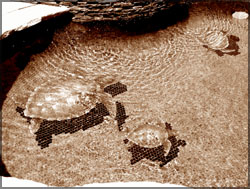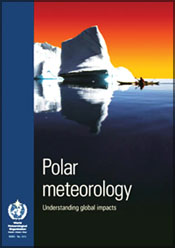|

Turtle conservation
You may know that turtles are a protected species of animals. There
are special turtle conservation areas in Sri Lanka as well. But did you
know that the biggest threat to turtles is man himself? People kill
these animals for their meat; they also eat their eggs, thus destroying
another generation of animals.
Turtles are destroyed by man accidentally too. The fishing hooks that
are used by fishermen are also responsible for the deaths of many turtles. It is estimated that
thousands of Sri Lanka's endangered sea turtles are accidentally snagged
(torn) by the 'J' shaped traditional longline fishing hooks, every year.
responsible for the deaths of many turtles. It is estimated that
thousands of Sri Lanka's endangered sea turtles are accidentally snagged
(torn) by the 'J' shaped traditional longline fishing hooks, every year.
These hooks can also be swallowed by them, resulting in suffocation
(inability to breathe) or internal bleeding.
As a solution to this problem, a circular, turtle-friendly fishing
hook has been introduced by London's Marine Conservation Society (MCS).
A British retail chain and fishermen in Sri Lanka would join this
venture to introduce these new fishing hooks.
Over 30,000 of these hooks will be used by a fleet of seven longline
fishing vessels. The circular fishing hook had been discovered by US
scientists who were involved in the conservation of sea turtles. They
are expected to reduce turtle deaths through longline fishing by 90 per
cent.
However, the 30,000 hooks to be distributed in the initial stage will
only be a fraction(small part) of the total requirement in Sri Lanka.
Depending on the success of the Sri Lankan experiment, the retail chain
and the supplier will start distributing the equipment among other
fishermen who use traditional hooks.
"By converting just two fishing vessels to turtle-friendly gear and
techniques, 200 juvenile and adult marine turtles could be saved each
year," the MCS said.
"If three kilometres of beach in Rekawa and Kosgoda can be protected,
90 per cent of the turtle population visiting Sri Lanka can be
conserved. We need to provide adequate protection and develop
appropriate strategies to protect and manage 2.5 km in Rekawa and 0.5 km
of the Kosgoda beach," it said.
A recent study on Sri Lankan sea turtles found that the island's
beaches provide nesting grounds for five species of marine turtles -
Green turtle, Leatherback, Hawksbill, Loggerhead and Olive Ridley. Each
species is recorded to nest along specific areas of Sri Lanka's coast.
The island is one of the leading countries that has paid attention to
the conservation of sea turtles.
Disparities in Colombo schools
The Colombo Education Zone has schools with the best of modern
facilities as well as schools without even one proper building, Western Province Chief Minister Reginald Cooray said
recently during an inspection tour of the Colombo Education Zone.
proper building, Western Province Chief Minister Reginald Cooray said
recently during an inspection tour of the Colombo Education Zone.
There are hundreds of underprivileged families in areas like
Wanathamulla: a school in this area is located in the building of an old
tea store and has a number of shortcomings.
The Minister promised to convert this location into a fully-equipped
school building. He expects that this will help the underprivileged
children in the area to carry out their studies without any difficulties
or hindrances. The estimates for the renovation of the building will be
carried out shortly.
Towards a clean, green city
The Colombo city, like most other major cities of the world, is
heavily polluted. One of the main reasons for this heavy pollution is
the large number of vehicles joining the roads every year.
The transport sector rather than the industrial sector has been found
to be the largest contributor to air
|

One of the main reasons for this heavy pollution is the large number
of vehicles joining the roads every year.
|
pollution in the capital.
Some of these vehicles are not roadworthy at all as they have been
plying the roads for far too long, both here and abroad. Lack of
maintenance of some vehicles has also led to their unroad worthiness.
These vehicles emit smoke and gases which are harmful to the health
of living beings. They also destroy the beauty of the environment,
covering all surroundings in dirt and grime. This problem of air
pollution is increasing by the day. As a means of reducing the air
pollution in the city of Colombo, the Government has introduced plans to
test all vehicles for emissions before they are issued with revenue
licences.
Accordingly, all vehicle owners will have to undergo a vehicle
emission test before obtaining or renewing their revenue licences at the
Motor Traffic Department. This step has been made by the authorities
with the objective of making a clean and green environment which
sustains human life and nature.
The programme of issuing 'vehicle emission certificates' will be
implemented in collaboration with the Motor Traffic Department.
Drought will affect park animals
The drought or dry season affects not only humans; it's just as
difficult on the animal population. And as you know, the dry season
starts around April.
This oncoming drought season is expected to affect animal habitats in
the Yala and Bundala National Parks. The effects will be more serious
because many of the tanks in these parks have been damaged by the severe
rains and floods the Hambantota district had experienced in the recent
past.
During the previous drought season, the Department of Wildlife
provided water to these parks through the dredging of several tanks and
reservoirs in them. Dried up water holes were also laid with polythene
so that they can store water. The Department had also placed over 800
barrels in different parts of these parks to store water for the wild
beasts.
Understanding polar meteorology
The World Meteorological Day will be observed on March 23 by the 187
members of the World Meteorological Organisation (WMO) and the world
meteorological community. It will be commemorated this year under the
theme 'Polar meteorology: Understanding global impacts'.
This theme was decided by the WMO Executive Council in 2005 in
recognition and as a contribution to the International Polar Year (2007/2008). The events are co-sponsored by the
WMO and International Council for Science.
International Polar Year (2007/2008). The events are co-sponsored by the
WMO and International Council for Science.
The main objective of this special year is to carry out scientific
research on the polar regions and their far-reaching effects on the
globe. The climatic and environmental conditions in these regions have
taken on an added importance in the wake of global warming and the
possibility of melting icecaps.
Through these research activities, WMO will contribute towards polar
meteorology, oceanography, glaciology and hydrology. WMO's Space
Programme will also get a boost through these measures. Developments are
expected to be made in the areas of weather forecasts and predictions
and the assessment of climate change and impacts.
World Meteorological Day is observed on March 23 to commemorate the
day in 1950, when the WMO Convention came into force. The organisation
was designated as a specialised UN Agency in 1951.
|
